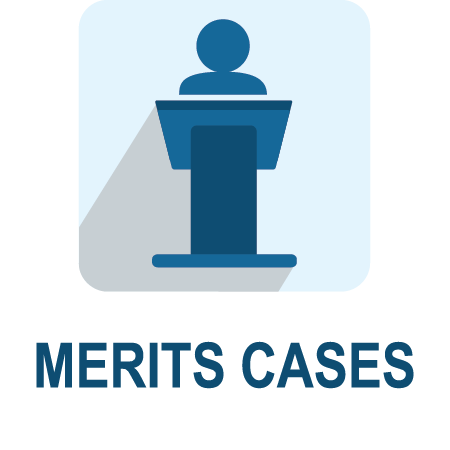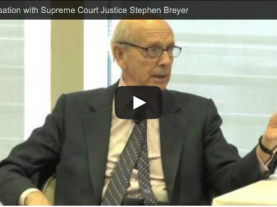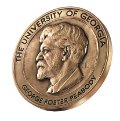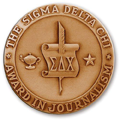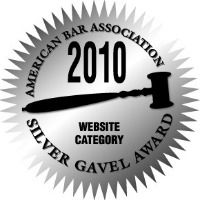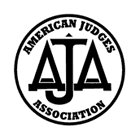Petitions to watch | Conference of January 8
In its Conference of January 8, 2016, the Court will consider petitions seeking review of issues such as whether “service advisors” at car dealerships are exempt from the Fair Labor Standards Act’s overtime-pay requirements, whether a stun gun is an “arm” within the meaning of the Second Amendment, and whether a federal court of appeals has jurisdiction to review an order denying class certification after the named plaintiffs voluntarily dismiss their claims with prejudice.
This edition of “Petitions to watch” features petitions raising issues that Tom has determined to have a reasonable chance of being granted, although we post them here without consideration of whether they present appropriate vehicles in which to decide those issues. Our policy is to include and disclose all cases in which Goldstein & Russell, P.C., whose attorneys contribute to this blog in various capacities, represents either a party or an amicus in the case, with the exception of the rare cases in which Goldstein & Russell represents the respondent(s) but does not appear on the briefs in the case.
Issue: Whether a district court may dismiss a removed action rather than remanding it to state court under 28 U.S.C. § 1447(c) after a dispositive finding by the district court that there is no federal jurisdiction and, for the same reason, there can be no state court jurisdiction.
Issue: (1) Whether Johnson v. United States has been “made retroactive” to second or successive petitions for habeas corpus within the meaning of 28 U.S.C. § 2255(h)(2), as the First, Second, Seventh, Eighth, and Ninth Circuits have held in conflict with the Fifth, Tenth and Eleventh Circuits; and (2) if not, whether the Court should now make Johnson retroactive.
Issue: Whether the exclusion of churches from an otherwise neutral and secular aid program violates the Free Exercise and Equal Protection Clauses when the state has no valid Establishment Clause concern.
Issue: (1) What standard governs the decision whether to dismiss a relator's claim for violation of the False Claims Act's seal requirement; and (2) whether and under what standard a corporation or other organization may be deemed to have “knowingly” presented a false claim, or used or made a false record, in violation of Section 3729(a) of the False Claims Act based on the purported collective knowledge or imputed ill intent of employees other than the employee who made the decision to present the claim or record found to be false, where (i) the employee submitting the claim or record independently made the decision to present the claim or record in good faith after reviewing the available information and (ii) there was no causal nexus between the submission of the false claim or record and the purported collective knowledge or imputed ill intent of those other employees.
Issue: Whether the Idaho Supreme Court correctly concluded that Hughes v. Rowe and Christiansburg Garment Co. v. EEOC do not bind state courts because this Court “does not have authority to limit the discretion of state courts where such limitation is not contained in the statute.”
Issue: (1) Whether, when a district court dismisses a complaint without leave to amend, a subsequent motion for leave to amend should be judged by ordinary Federal Rule of Civil Procedure 15(a)(2) standards (as the Second, Fourth, Fifth, Seventh, and Eleventh Circuits have held), or whether a post-judgment motion seeking leave to amend is a “disfavored” motion that the court has “considerable discretion to deny,” as the Eighth Circuit (joining the minority view of the First, Sixth, and Ninth Circuits) held here; and (2) whether, when considering whether a plaintiff has unduly delayed seeking leave to amend after a dismissal for failure to state a claim, the court must count only the time from the date on which the motion was granted (as the Second, Sixth, and Seventh Circuits have held), or whether the court may penalize the plaintiff for not seeking to amend while the motion was pending by counting the time from the date on which a motion to dismiss was filed, as the Eighth Circuit (in accord with the views of the First and Third Circuits) held here.
Issue: (1) Whether the Brunner test is the proper standard for determining “undue hardship” for the discharge of student loan debt; and (2) whether, if the Brunner test is the proper standard, that test should be (i) modified to eliminate the requirement that a debtor in the past have “made a good faith effort to repay the loans,” and (ii) clarified to establish that a debtor need only prove by a preponderance of the evidence that his inability to pay is “likely to persist for a significant portion of the repayment period,” not that there is a “certainty of hopelessness.”
Issue: Whether “official action” under the controlling fraud statutes is limited to exercising actual governmental power, threatening to exercise such power, or pressuring others to exercise such power, and whether the jury must be so instructed; or, if not so limited, whether the Hobbs Act and honest-services fraud statute are unconstitutional.
Issue: Whether, after a judge has discharged a jury from service in a case and the jurors have left the judge's presence, the judge may recall the jurors for further service in the same case.
Issue: Whether a federal court of appeals has jurisdiction to review an order denying class certification after the named plaintiffs voluntarily dismiss their claims with prejudice.
Issue: (1) Whether the court of appeals erred in holding that, in inter partes review (IPR) proceedings, the Patent Trial and Appeal Board may construe claims in an issued patent according to their broadest reasonable interpretation rather than their plain and ordinary meaning; and (2) whether the court of appeals erred in holding that, even if the Board exceeds its statutory authority in instituting an IPR proceeding, the Board’s decision whether to institute an IPR proceeding is judicially unreviewable.
Issue: Whether “service advisors” at car dealerships are exempt under 29 U.S.C. §213(b)(10)(A) from the Fair Labor Standards Act's overtime-pay requirements.
Issue: Whether and under what circumstances expropriations that violate binding international human rights treaties and/or norms of customary international law constitute takings in violation of “international law” under 28 U.S.C. § 1605(a)(3) (Foreign Sovereign Immunities Act) and 22 U.S.C. § 2370(e)(2) (Second Hickenlooper Amendment).
Issue: Whether the Americans with Disabilities Act requires a plaintiff to prove that her disability was the “sole cause” of the challenged conduct (as the Tenth Circuit has held repeatedly), or whether the Act permits claims when disability discrimination is accompanied by other factors (as every other federal court of appeals has held).
Issue: (1) Whether the provisions of the Endangered Species Act (ESA) “displace” the provisions of the National Environmental Policy Act (NEPA) or otherwise render NEPA analysis unnecessary, thus eliminating the requirement of environmental review when the Fish and Wildlife Service (FWS) adopts a designation of “critical habitat” that has the potential to significantly affect the human environment; and (2) whether Section 2(c)(2) of the ESA is a meaningless, non-operative statement of policy that fails to create any substantive or enforceable rights regarding cooperation by FWS with state and local governmental agencies to resolve water resource issues arising from administration of the ESA in concert with conservation of endangered species.
Issue: Whether the Second Circuit erred in holding that 8 U.S.C. § 1252(a)(2)(C) divests the courts of appeals of jurisdiction to review factual claims challenging the denial of deferral of removal under the Convention Against Torture.
Issue: (1) Whether a defendant is subject to suit under the Alien Tort Statute for aiding and abetting another person's alleged violation of the law of nations based on allegations that the defendant intended to pursue a legitimate business objective while knowing (but not intending) that the objective could be advanced by the other person's violation of international law; (2) whether the “focus” test of Morrison v. National Australian Bank, Ltd. governs whether a proposed application of the Alien Tort Statute would be impermissibly extraterritorial under Kiobel v. Royal Dutch Petroleum Co.; and (3) whether there is a well-defined international-law consensus that corporations are subject to liability for violations of the law of nations.
Issue: Whether a party may appeal an order denying summary judgment after a full trial on the merits when the party bases its challenge on a circumscribed legal error, as opposed to an error concerning the existence of factual issues.
Issue: Whether an alien who fails to correct an address erroneously recorded by the government on a Notice to Appear, and who is subsequently ordered removed in absentia, may reopen his removal order when he was never advised of his obligation under 8 C.F.R. § 1003.15(d)(1) to correct the government's error.
Issue: Whether, if a state statute does not in any way discriminate against, or impose an excessive burden on, interstate commerce, the Commerce Clause of the United States Constitution nevertheless requires the statute's invalidation solely because it regulates commerce occurring beyond the borders of the state that enacted it.
Issue: Whether the Kansas Supreme Court misinterpreted and improperly expanded the Supreme Court's decisions in Graham v. Florida and Miller v. Alabama when it extended those decisions to a sentence that does not involve life imprisonment, holding that the Eighth Amendment categorically bars a sentence of mandatory lifetime postrelease supervision (i.e., non-incarceration) for juveniles convicted of serious sex offenses.
Issue: Whether the “additional duties” clause of the Federal Magistrates Act authorizes a magistrate to accept a felony guilty plea with the defendant's consent.
Issue: Whether Bankruptcy Code Section 523(a)(2)(A) renders non-dischargeable a claim against a debtor based on a fraudulent transfer, in circumstances where the debtor did not make a misrepresentation.
Issue: Whether the Employee Retirement Income Security Act permits a state court to retroactively reassign plan benefits after the plan participant's death when the participant directed that the benefits would go to his spouse and when the plan documents directed that the benefits would go to the spouse absent the spouse's consent to reassignment.
Relists
Issue: (1) Whether the Louisiana courts erred in failing to find that the State’s failure to disclose exculpatory evidence violated its obligation under Brady v. Maryland and that this failure prejudiced the defense; and (2) whether the Louisiana courts erred in failing to find that petitioner’s sole attorney provided ineffective representation at the guilt phase of trial under Strickland v. Washington.
Issue: (1) Whether a stun gun is an “arm” within the meaning of the Second Amendment, and (2) whether Massachusetts’s blanket prohibition on the possession of stun guns infringes the right of the people to keep and bear arms in violation of the Second and Fourteenth Amendments.
Issue: Whether the Fourth Circuit erred in affirming the denial of relief on the inmate petitioner's complaint alleging that the prison discriminated against him in violation of the First Amendment and the Religious Land Use and Institutionalized Persons Act by refusing to permit him to organize a Jewish Bible study group.
Issue: (1) Whether motorists have the Fourth Amendment right to refuse consent to warrantless breath-analysis, and to demand compliance with the Warrant Clause, before the state invades their bodily integrity in search of incriminating evidence; and (2) if so, whether the state can punish motorists for asserting these Fourth Amendment rights.
Issue: (1) Whether the Massachusetts Bay Transportation Authority (MBTA) created a public forum by accepting for display on its property a wide array of controversial political and public-issue ads, including ads that address the same controversial subject matter as petitioners’ pro-Israel ad, and thus violated the First Amendment by rejecting petitioners’ ad based on its content; and (2) regardless of the nature of the forum, whether the MBTA’s rejection of petitioners’ advertisement based on an advertising guideline that prohibits ads considered by MBTA officials to be “demeaning and disparaging” was a viewpoint-based restriction of speech in violation of the First Amendment.
Issue: (1) Whether the Ninth Circuit’s judgment in this case should be granted, vacated, and remanded in light of Horne v. Department of Agriculture, and (2) whether the California Unclaimed Property Law violates the Due Process Clause of the Fourteenth Amendment because it deprives owners of their property without affording constitutionally adequate notice.
Issue: Whether, in a regulatory taking case, the “parcel as a whole” concept as described in Penn Central Transportation Company v. City of New York, establishes a rule that two legally distinct but commonly owned contiguous parcels must be combined for takings analysis purposes.
Recommended Citation: John Ehrett, Petitions to watch | Conference of January 8, SCOTUSblog (Jan. 4, 2016, 11:00 PM), http://www.scotusblog.com/2016/01/petitions-to-watch-conference-of-january-8/

